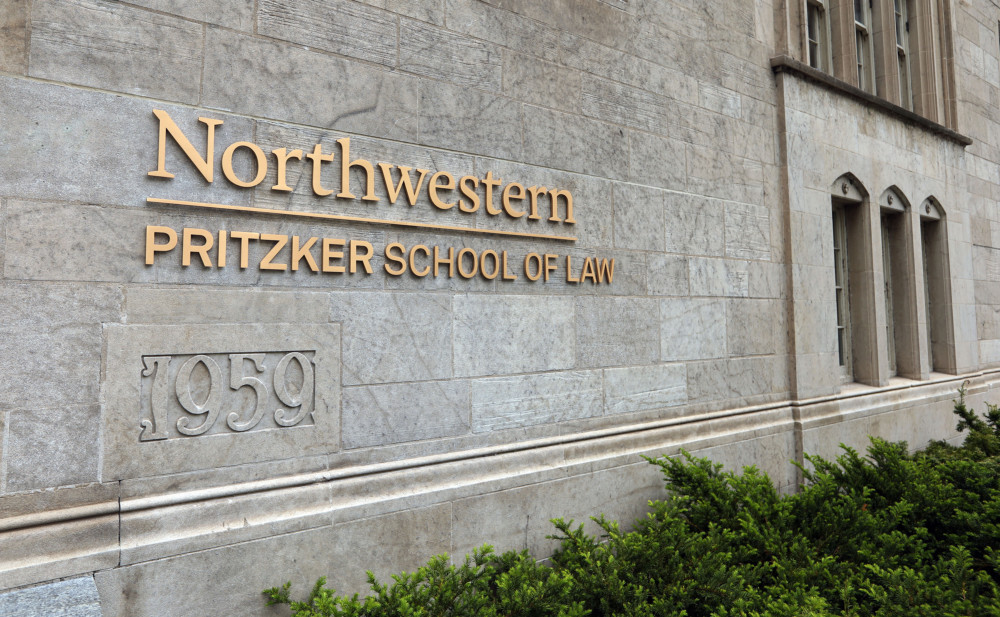By Robert Channick
Chicago Tribune
WWR Article Summary (tl;dr) The LSAT was created at the urging of law schools 70 years ago and became a requirement for applicants to gain admission. But its hold on the admissions process has been loosening in recent years.
Chicago Tribune
Admissions tests, long an ominous and pressure-filled requirement for application to law school, may soon become entirely optional.
A proposal working its way through the Chicago-based American Bar Association, which is the accrediting body for law schools, would eliminate the requirement of a “valid and reliable test” such as the LSAT, and, more recently, the GRE, as part of a law school’s admission process.
The rule change was adopted by the council of the bar association’s legal education section at a Friday meeting in Washington, D.C. But prospective law students may still want to keep a supply of sharpened pencils on hand.
The proposal awaits an August review by bar association delegates before it can be finalized. And many law schools may not be so quick to abandon the LSAT as a primary admissions tool.
“I would expect law schools to continue to rely on an admissions test as a fundamental piece of their admissions policies, and likely the LSAT would be the test of choice in the foreseeable future,” Barry Currier, managing director of ABA Accreditation said in a statement. “But the use of tests other than the LSAT, including the GRE, may add to the group of individuals who wish to study law, and that might be a positive development.”
The LSAT was created at the urging of law schools 70 years ago and became a requirement for applicants to gain admission. The half-day standardized exam is now given six times a year at designated centers, up from four exams in previous years.
But its hold on the admissions process has been loosening in recent years, with a number of law schools, including some in Chicago, beginning to allow applicants to take the GRE as an alternative.
The University of Arizona College of Law announced in 2016 that it would accept either the GRE graduate school entry exam or the LSAT from applicants, a movement that gathered steam as more schools added the option, including Northwestern University’s Pritzker School of Law and John Marshall School of Law in Chicago.
More than 15 law schools since have concluded that the GRE, administered by the nonprofit Educational Testing Service, is a “valid and reliable” alternative to the LSAT, meeting the bar association admissions standard for accredited schools.
Making admissions tests optional would likely help the GRE gain traction, experts say.
“We’ve had a critical mass of students who’ve applied just with the GRE,” said Daniel Rodriguez, dean of Northwestern’s Pritzker School of Law. “With the decision made by the council of the ABA, we’ll get more in the coming years.”
At the same time, Rodriguez said the LSAT is the “gold standard” in standardized law school admissions tests, and he expects it will remain so for years to come.
“I don’t think any of us think that the LSAT is going to disappear,” he said.
Recent data tends to support the strength of the LSAT, which has been on the rise with a recent surge in applications.
The number of law school applicants had been cut nearly in half since peaking at 100,600 in 2004, according to the bar association. Not surprisingly, the number of LSAT exams taken fell from an all-time high of nearly 172,000 in the 2009-2010 academic year to less than 102,000 within five years, according to the Law School Admission Council, a nonprofit organization that administers the test.
There are signs of resurgent interest in law school, with the number of applicants up 8.6 percent this year to 56,265, according to the admission council. Meanwhile, LSAT exams jumped more than 18 percent, to about 129,000 tests administered, during the 2017-2018 academic year.
Kellye Testy, president and CEO of the admission council, said she expects that schools will continue to use the LSAT for substantially all of their admissions.
“While these changes shift the responsibility for fair admission practices from the ABA to law schools, we do not anticipate significant changes for the vast majority of law schools or their applicants to provide transparency and fairness by evaluating all applicants using common and consistent standards,” Testy said in a statement.
While Northwestern has welcomed the GRE as an alternative to the LSAT, Rodriguez was not ready to write off testing as an integral part of the admissions process.
“I would be very surprised if any significant number of schools would decide to abandon an admissions test,” Rodriguez said. “The bottom line is law schools ignore evidence of ability and capability through an admissions test at their peril.”














































































































































































































































































































































































